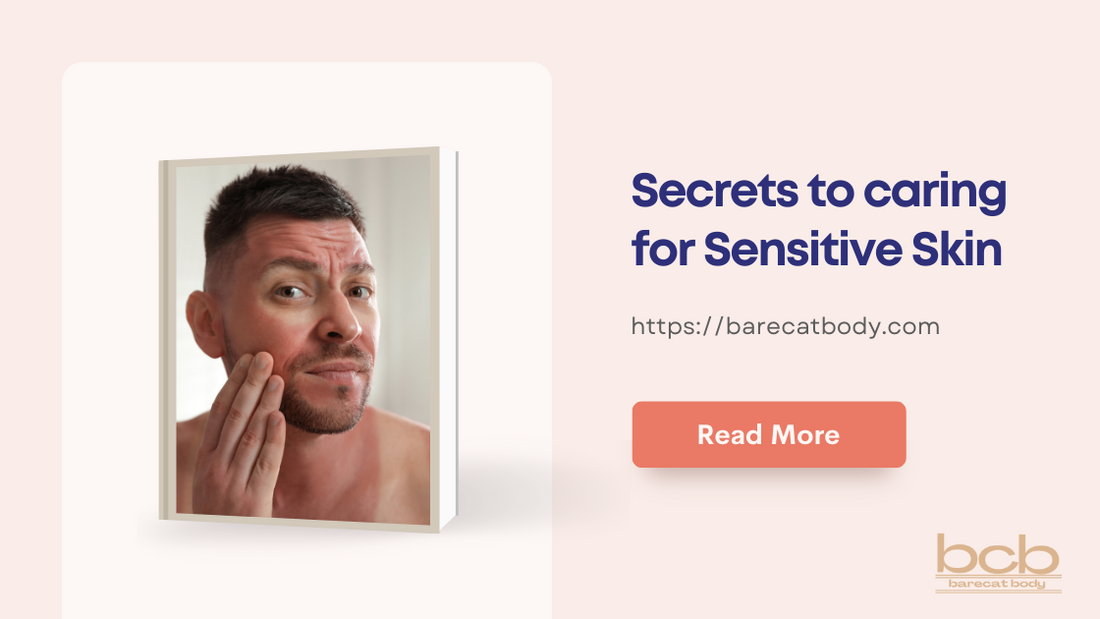
Secretos para cuidar la piel sensible
Compartir
Si tienes piel sensible , podrías sentirte tentado a usar productos que prometen alivio del enrojecimiento, el ardor, el escozor y la picazón. Sin embargo, el secreto del éxito suele estar en reducir el uso, elegir buenos productos y crear una rutina.
¿Qué significa piel sensible? A veces se usa para describir afecciones clínicas como eccema, rosácea, psoriasis o dermatitis de contacto. Otras veces, puede referirse a una tendencia general a irritarse por elementos del entorno o por productos que se aplican en la piel.
Por eso es importante consultar a un dermatólogo si los síntomas son graves o prolongados. Este puede ayudarle a tratar afecciones subyacentes y reducir el riesgo de desarrollar alergias. También pueden realizar pruebas para detectar reacciones alérgicas a alimentos o medicamentos.
Tus opciones específicas dependerán de tu condición individual. Mientras lo descubres, prueba estas sugerencias para calmar tu piel sensible .
Cómo evitar la irritación de la piel sensible:
- Simplifica tu rutina. Muchos dermatólogos recomiendan que los pacientes con piel sensible usen la menor cantidad posible de productos y con la menor cantidad de ingredientes. Esto podría ser suficiente para eliminar los síntomas. Asegúrate de revisar tus limpiadores y exfoliantes corporales al simplificar tu rutina de cuidado de la piel. Siempre que tengo la piel sensible , recurro a lo básico y uso los productos calmantes más naturales que puedo encontrar. Para limpiar, el jabón de Castilla puro sin perfume del Dr. Bronner es uno de los favoritos.
- Olfatea. La fragancia es el irritante más común. Para mayor seguridad, busca productos sin fragancia en lugar de sin aroma. Siempre tienes la opción de agregar fragancia o aceites esenciales a tu jabón líquido que también calman la piel como el árbol de té, el cedro o la lavanda.
- Lee las etiquetas. ¿Qué hay de otras sustancias que pueden ser desencadenantes? La lista sería larga, incluyendo parabenos, sulfatos, colorantes y alcohol. Las líneas de expresión para piel sensible pueden ser un buen punto de partida, pero aun así tendrás que controlar cada ingrediente individualmente. Busque productos que incluyan humectantes como glicerina vegetal o ácido hidrolónico. Los humectantes retienen la humedad cerca de la piel para que ésta pueda absorberla.
- Haz pruebas de parche. Antes de usar un producto nuevo en la cara o el cuerpo, aplícalo en una pequeña zona de la cara interna del brazo y espera toda la noche. Si no te causa ninguna reacción, podrías continuar sin problema. Con productos químicos más fuertes, puedes desarrollar tolerancia usándolos inicialmente un día a la semana en pequeñas cantidades y aplicando una capa de crema hidratante debajo.
- Tómate tu tiempo para recuperarte. Deja de usar cualquier producto que te irrite la piel. Sé especialmente cuidadoso durante la recuperación. Dale a tu piel suficiente tiempo para sanar. Lleve un diario de los productos que le funcionan y de los aceites esenciales o fragancias que haya añadido para mejorar su experiencia.
Otros consejos para el cuidado de la piel sensible:
- Hidrata abundantemente. La sensibilidad y la sequedad están estrechamente relacionadas porque la barrera cutánea, debilitada, permite la entrada de irritantes y la salida de agua. Usa fórmulas de hidratación profunda y aplícalas mientras tu piel aún esté húmeda, especialmente si usas productos que no contienen agua.
- Exfolia con suavidad. Muchos adultos se exfolian con demasiada frecuencia y fuerza. Una o dos veces por semana suele ser suficiente. Deja que tus dedos hagan el trabajo en lugar de un cepillo, una esponja vegetal o una toallita. Mi exfoliante favorito es mi Coffee Scrub. Simplemente deja la piel más suave, flexible, hidratada y humectada. A mis 58 años estoy disfrutando de la mejor piel de mi vida.
- Dúchate brevemente. Lavarse demasiado es otra causa común. Usa agua tibia en lugar de caliente y limita las duchas a 10 minutos o menos. El uso de limpiadores diseñados para limpiar suavemente la piel hace una gran diferencia. Pensemos en cómo elegimos limpiar la piel del bebé. No queremos exagerar. Deberíamos pensar en Nuestra piel adulta de la misma manera. Menos es más.
- Usa protector solar. La exposición excesiva al sol puede dañar todo tipo de piel. Busca productos con óxido de zinc y un FPS de al menos 30. Además, usar ropa ligera hecha de lino o algodón ligero también puede proteger tu piel.
- Revisa tus cosméticos. Elige maquillaje mineral y evita los productos a prueba de agua, que son más difíciles de retirar. Desecha cualquier cosmético que haya pasado su fecha de caducidad o que empiece a mostrar signos de desgaste. Además, si usas una manteca o aceite corporal de buena calidad, úsalo como desmaquillador y para afeitarte, especialmente en áreas sensibles de tu cuerpo.
- Prepárate para el invierno. El clima frío y seco, junto con el calor en interiores, supone un reto para la piel sensible. Quizás necesites ajustar tus rutinas de cuidado de la piel para mantenerte al día. Eso podría significar usar más crema hidratante y bálsamo labial. Nuevamente aquí es donde un producto que incluye agua y un humectante hará una gran diferencia para mantener tu piel constantemente saludable y feliz.
- Usa fibras naturales. Tu ropa también puede afectar tu piel. Las prendas de seda o algodón pueden ser más agradables que las sintéticas. Algunas fibras naturales son el algodón, el cáñamo, la seda, el lino, la lana, el mohair, la angora, el yute, el pelo de camello, el lino, etc. Usa fibras naturales .
- Limpie con cuidado. Algunos limpiadores domésticos contienen químicos agresivos que conviene evitar. Use guantes y opte por productos sostenibles que tienden a ser más suaves. Elija productos como bicarbonato de sodio, vinagre blanco, aceite esencial de menta, agua destilada, aceite esencial de limón, etc. Los aceites esenciales y el agua, especialmente el aceite de menta, son excelentes para el control de plagas de insectos tanto rastreros como voladores.
- Come sano. Una piel radiante empieza desde dentro. Lleva una dieta nutritiva rica en alimentos integrales y mantente hidratado . También ayuda dormir bien, hacer ejercicio con regularidad y controlar el estrés. Aunque comer sano y consumir mucha agua son muy útiles para la salud de la piel, una vez que ésta esté dañada, necesitarás contar con excelentes productos para tratar tu barrera cutánea.
Mantén tu piel más sana y tu vida más cómoda. Protege tu piel sensible de los irritantes y contaminantes diarios, e hidrata tu piel con frecuencia y en profundidad. Si los síntomas persisten o no sabes qué hacer, consulta con tu dermatólogo. Como siempre, puedes enviar tus preguntas por correo electrónico a leslie@barecatbody.com
Cuando esté buscando productos para el cuidado del cuerpo y del cabello 100% naturales y de alta calidad, visite el sitio web de Barecat Body Care Products. Puede realizar su pedido en cualquier momento en barecatbody.com . Tu piel te lo agradecerá.
